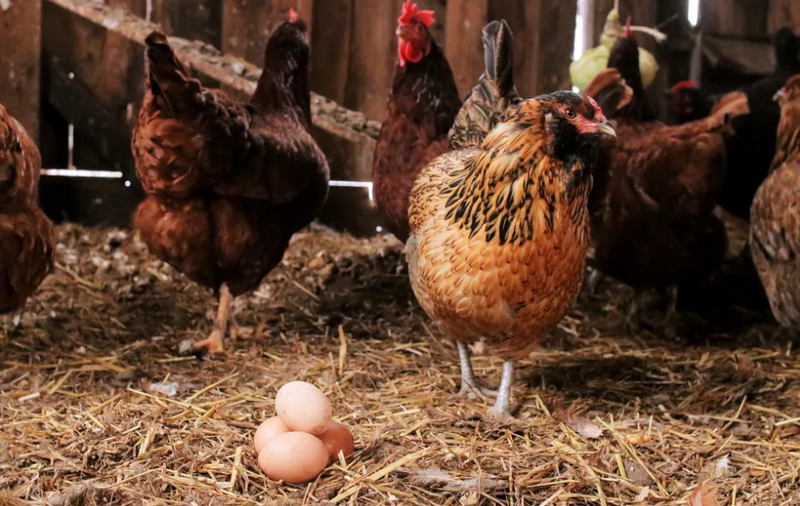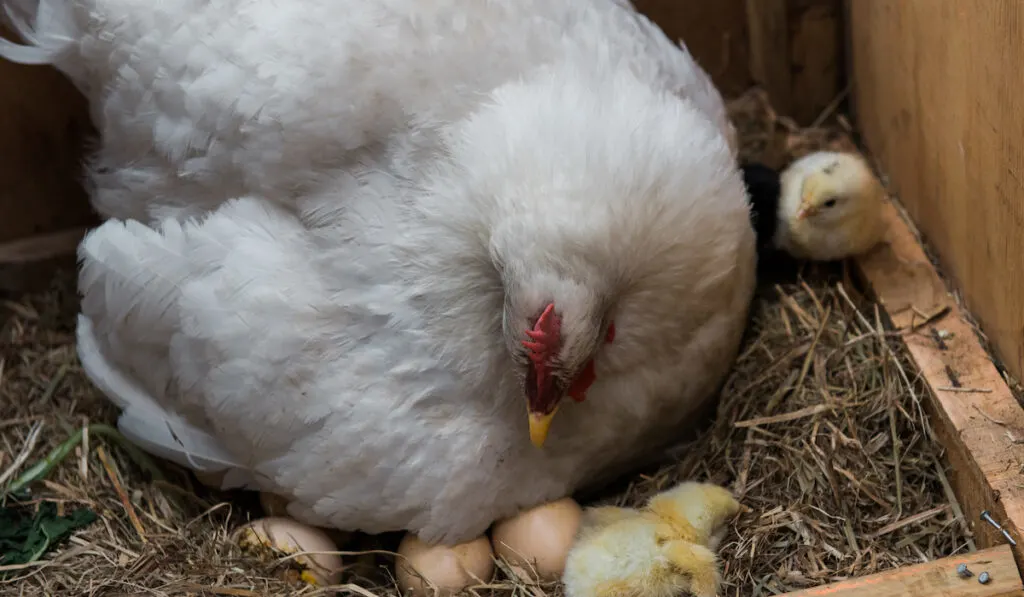Do Hens Produce Eggs Without A Rooster? A Comprehensive Guide
Alright folks, let’s talk about the age-old question: do hens produce eggs without a rooster? It’s a question that has puzzled many chicken enthusiasts, backyard farmers, and even casual observers. If you’ve ever wondered whether your hens can lay eggs without the presence of a rooster, you’re in the right place. This guide will break it down for you, covering everything from the science behind egg production to practical tips for managing your flock.
So, why does this topic matter? Well, if you’re planning to start a backyard chicken coop or already have one, understanding how hens work is crucial. Whether you’re raising chickens for eggs, companionship, or both, knowing the ins and outs of their reproductive system will help you make informed decisions. Plus, it’s just plain fascinating to learn about the natural processes that govern these feathered friends of ours.
Before we dive deep, let’s set the record straight: hens don’t need a rooster to lay eggs. But there’s a lot more to the story. In this comprehensive guide, we’ll explore the science, myths, and practical applications of egg production without a rooster. So grab your favorite beverage, sit back, and let’s get started!
Read also:Ted Turner Net Worth The Visionary Behind The Fortune
Table of Contents:
- Understanding the Basics of Egg Production
- The Science Behind Egg Laying
- Busting Common Myths About Roosters and Eggs
- Fertile vs Infertile Eggs: What’s the Difference?
- Factors Affecting Egg Production
- Tips for Maximizing Egg Production Without a Rooster
- Best Chicken Breeds for Egg Laying
- Seasonal Variations in Egg Laying
- Managing Your Flock Without a Rooster
- Conclusion: Do Hens Really Need Roosters?
Understanding the Basics of Egg Production
First things first, let’s get the basics out of the way. Hens are incredible creatures when it comes to egg production. They’re like nature’s little egg factories, and their ability to lay eggs is a fascinating biological process. But here’s the kicker: hens don’t need a rooster to lay eggs. In fact, most of the eggs you buy at the grocery store are unfertilized, meaning no rooster was involved in the process.
How Do Hens Lay Eggs?
Now, let’s talk about the nitty-gritty details. Hens have ovaries, just like humans, but they only use one of them—the left one. This ovary produces yolks, which eventually become eggs if the conditions are right. The yolk travels through the hen’s oviduct, where it picks up layers of albumen (egg white), membranes, and the shell. Voila! You’ve got yourself an egg.
And here’s the kicker: this whole process happens regardless of whether a rooster is around. So, if you’re wondering whether your hens will still lay eggs without a rooster, the answer is a resounding yes.
The Science Behind Egg Laying
Let’s dive a little deeper into the science of egg production. Hens are biologically wired to lay eggs as part of their reproductive cycle. Even in the absence of a rooster, their bodies continue to produce eggs because it’s a natural process. Think of it like a monthly cycle for humans—it happens whether or not reproduction is intended.
What Triggers Egg Laying?
Several factors influence egg production in hens. Light exposure is one of the biggest triggers. Hens need about 14-16 hours of light per day to maintain optimal egg production. This is why egg production tends to decrease during the shorter days of winter. Nutrition also plays a huge role. Hens need a balanced diet rich in protein, calcium, and other essential nutrients to produce high-quality eggs.
Read also:Experience The Ultimate Dirty Heads Concert What You Need To Know
Age is another factor. Young hens, or pullets, usually start laying eggs around 18-24 weeks of age. As they get older, their egg production may slow down, but they can continue laying eggs for several years.
Busting Common Myths About Roosters and Eggs
There are a lot of misconceptions floating around about roosters and egg production. Let’s clear up some of the most common ones so you can make informed decisions about your flock.
- Myth #1: Hens Need a Rooster to Lay Eggs – False. Hens lay eggs regardless of whether a rooster is present.
- Myth #2: All Eggs Are Fertile – False. Only eggs laid by hens that have mated with a rooster are fertile.
- Myth #3: Roosters Improve Egg Quality – False. Roosters don’t affect the quality of eggs laid by hens unless you’re specifically breeding for fertile eggs.
Fertile vs Infertile Eggs: What’s the Difference?
One of the biggest questions people have is about the difference between fertile and infertile eggs. Let’s break it down:
Fertile Eggs
Fertile eggs are produced when a hen mates with a rooster. These eggs have the potential to develop into baby chicks if they’re incubated under the right conditions. Fertile eggs are often sought after by people who want to hatch their own chickens.
Infertile Eggs
Infertile eggs, on the other hand, are what you’ll get if your hens don’t have access to a rooster. These eggs are perfectly safe to eat and are what you’ll find in most grocery stores. They won’t develop into chicks, even if you try to incubate them.
Factors Affecting Egg Production
While hens don’t need a rooster to lay eggs, there are several factors that can affect their egg production. Here are some of the most important ones:
- Age – Younger hens tend to lay more eggs than older hens.
- Light Exposure – Hens need adequate light to maintain egg production.
- Nutrition – A balanced diet is crucial for healthy egg production.
- Stress – Stress can cause hens to stop laying eggs or lay fewer eggs.
- Health – Illness or parasites can negatively impact egg production.
Tips for Maximizing Egg Production Without a Rooster
If you’re raising hens without a rooster, there are several things you can do to maximize their egg production:
Provide Adequate Light
As mentioned earlier, hens need about 14-16 hours of light per day to lay eggs consistently. If you live in an area with short winter days, consider using artificial lighting to supplement natural light.
Feed a Balanced Diet
Make sure your hens have access to a high-quality feed that’s rich in protein and calcium. You can also supplement their diet with treats like mealworms or crushed oyster shells to boost their nutrient intake.
Keep Them Stress-Free
Stress can cause hens to stop laying eggs, so it’s important to create a calm and comfortable environment for them. This means providing plenty of space, clean water, and protection from predators.
Best Chicken Breeds for Egg Laying
Not all chicken breeds are created equal when it comes to egg production. Some breeds are known for their high egg output, while others are better suited for meat production or ornamental purposes. Here are some of the best breeds for egg laying:
- White Leghorn – Known for their prolific egg production, White Leghorns can lay up to 300 eggs per year.
- Rhode Island Red – These hardy birds are excellent layers and can produce up to 250 eggs per year.
- Americana – Known for their colorful eggs, Ameraucanas are a great choice for those who want variety in their egg basket.
Seasonal Variations in Egg Laying
Egg production in hens can vary throughout the year due to changes in daylight, temperature, and other environmental factors. Here’s what you can expect:
Spring and Summer
During the longer days of spring and summer, hens tend to lay more eggs. This is because they have more light exposure, which stimulates their reproductive cycle.
Fall and Winter
As the days get shorter in the fall and winter, egg production may decrease. This is a natural part of the hen’s cycle, and it’s nothing to worry about. You can use artificial lighting to help maintain egg production during these months.
Managing Your Flock Without a Rooster
Raising hens without a rooster requires a slightly different approach to flock management. Here are some tips to help you keep your flock happy and healthy:
Monitor Egg Production
Keep track of how many eggs your hens are laying. This will help you identify any issues early on and make adjustments as needed.
Provide Adequate Space
Hens need plenty of space to roam and forage. Overcrowding can lead to stress and decreased egg production.
Protect from Predators
Make sure your coop is secure and predator-proof. This will help keep your hens safe and reduce stress.
Conclusion: Do Hens Really Need Roosters?
In conclusion, hens absolutely do not need roosters to lay eggs. They’re perfectly capable of producing eggs on their own, and in most cases, having a rooster around isn’t necessary unless you’re specifically breeding for fertile eggs. By understanding the science behind egg production and taking steps to optimize your flock’s environment, you can enjoy a steady supply of fresh, delicious eggs without the hassle of a rooster.
So, what’s next? If you found this guide helpful, feel free to share it with your fellow chicken enthusiasts. And if you have any questions or tips of your own, leave a comment below. Happy farming, folks!
And remember, whether you’re raising hens for eggs, companionship, or both, they’re truly amazing creatures. So take a moment to appreciate their hard work and dedication to providing you with those delicious, nutritious eggs. Cheers to happy, healthy hens!


